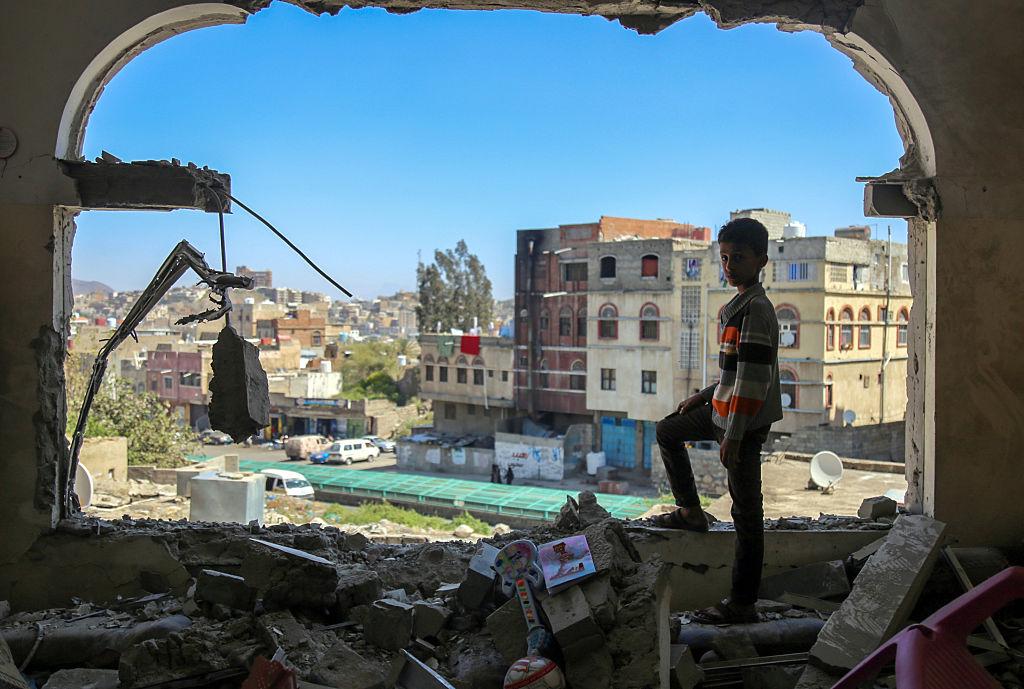UK bombs sold to Saudi Arabia contributed to ‘81 unlawful attacks in Yemen’, say human rights activists
The UK has been criticised for selling £3 billion worth of arms to the Kingdom over two years

More than 80 allegedly unlawful attacks in Yemen have been carried out by the Saudis, human rights activists have discovered, and some attacks have used UK-made bombs.
Since the spring of 2015, Saudi Arabia has launched what campaigners described as a “devastating aerial campaign”, targeting areas crowded with civilians including schools, hospitals, weddings and markets.
Many of those attacks, which allegedly breach international law, used bombs and cluster munitions made in the UK, worth £3 billion to the UK economy over the past two years.
The Campaign Against Arms Trade has challenged the UK Government over its alleged complicity in human rights crimes in Yemen, where more than 10,000 civilians have died as of January, and the verdict is pending.
Home Secretary Amber Rudd said she was “confident” the verdict would be in the government’s favour.
Kristine Beckerle, Yemen and Kuwait Researcher at Human Rights Watch, said Yemen is struggling from war, famine and cholera and the UK should stop selling arms to the Saudis.
“It’s not just a question of the right thing to do, it’s also a question of legal liability,” she said.
Asked if the coalition air strikes could breed terrorism in Yemen, she replied: “Do those conditions make it very, very difficult for civilians to live and get on with their lives? Absolutely. Impossible.”
Home Secretary Amber Rudd, when questioned during a BBC leaders debate last week on the issue, replied that selling arms was “good for our industry”.
On the BBC Woman’s Hour radio debate on Tuesday, Ms Rudd added that the UK had the “toughest form of export licences in the world” and the UK sold arms in a way that was “robust and correct”.
She was also questioned on the funding links to terrorism.
“Well, we’ve managed to reduce that, the funding links,” she said.
“We are always watchful to make sure that their [the Saudis'] influence, where it’s bad, is going to be limited, but you say that we should somehow distance ourselves from them because of their human rights approach to women and other elements – how do we do that, how do we change that? By influencing. By engaging.”
Conservatives are being pushed to make public a report, commissioned by former Prime Minister David Cameron, that investigates whether Saudi Arabia funds terrorist groups. Foreign Secretary Boris Johnson said the report was confidential, and Ms Rudd said the report was “never meant to be seen”.
In the wake of several terrorist attacks on UK soil, Theresa May said people needed to have "frankly embarrassing conversations".
Labour leader Jeremy Corbyn responded on Twitter: “We need to have some difficult conversations, starting with Saudi Arabia & other Gulf states that have funded and fuelled extremist ideology."
Since Saudi Arabia has been subject to direct attacks from al-Qaida starting May 2003, the country has become much more involved in combating extremism and in partnership with western allies.
But Adam Coogle, Middle East Researcher from Human Rights Watch, told The Independent that the Kingdom's new anti-terrorism apparatus – including a dedicated court and rehabilitation centre – was also being used to quash dissent and punish human rights activists.
“While Saudi Arabia may be affecting to help fight groups like Isis and al-Qaida in the country and in the region at large, there are very problematic ways in which Saudi clerics and government officials continue to propagate a very extremist, narrow interpretation of Islam that castigates non-Sunni Muslims as unbelievers,” he said.
“To be clear I would never accuse Saudi Arabia of supporting or funding Isis as there has never been any evidence to suggest this is true, but if you look at the way Saudi [school] textbooks describe Shia Muslims and the way Isis talks about them, there’s not a lot of difference.”
The US has also sold $100 billion in arms to the Kingdom during the Barack Obama administration, and Mr Trump negotiated a further $100 billion deal in May.
Mr Trump finalised the deal in Riyadh, before giving a speech on how to fight radical Islamic extremism and terrorism around the world. Saudi Arabia’s human rights violations in Yemen were not mentioned at the conference.
Join our commenting forum
Join thought-provoking conversations, follow other Independent readers and see their replies
Comments